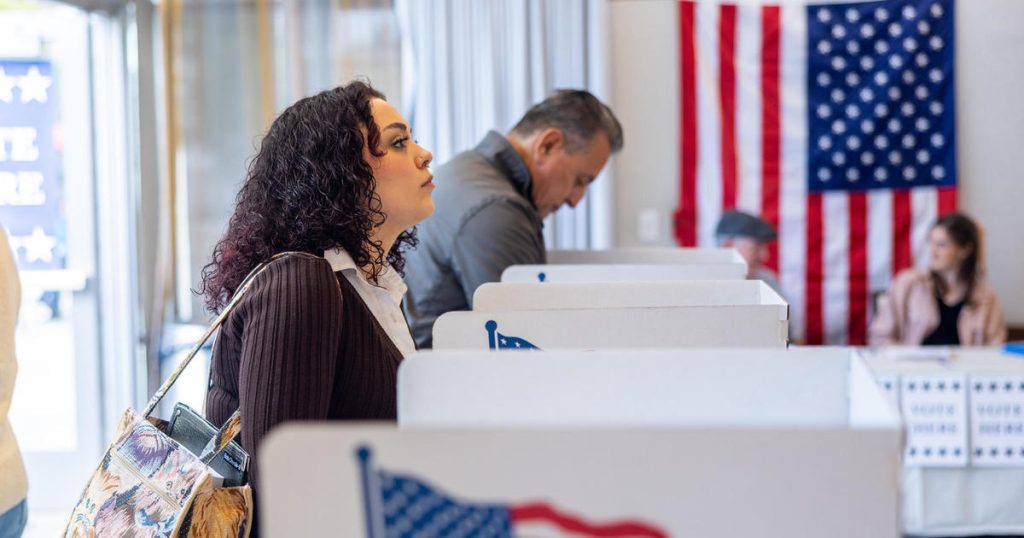The upcoming presidential election is causing significant stress for the majority of American adults, with over 69% reporting feeling anxious about the upcoming election. Other top stressors included concerns about the future of the nation, which weighed on 77% of surveyed adults. This survey, conducted by The Harris Poll on behalf of the American Psychological Association, included over 3,300 adults aged 18 or older residing in the U.S. California residents Andrew Peyton and Vanessa Apkenas shared that they are feeling stressed due to the constant barrage of news and political tensions in the country.
The stress levels reported in this survey were similar to those of the 2020 election but significantly higher than in 2016. Over 70% of participants expressed concerns about potential election violence or violence stemming from the election results, and over half feared that the election could signal the end of democracy. This collective stress about the consequences of the election results is what sets this survey apart from previous APA election polls. APA CEO Arthur C. Evans highlighted the unity in these concerns, with both Democrats and Republicans sharing similar anxieties about the outcome of the election.
Despite the overwhelming stress felt by many adults, more than 60% of those surveyed expressed feeling hopeful about the positive changes the election may bring about. Experts recommend various coping strategies for dealing with election-related stress, such as active engagement in the political process, limiting exposure to news and social media, setting boundaries on phone notifications, and focusing on aspects of life that can be controlled. Psychologist Dr. Susan Albers emphasized the importance of focusing on what individuals can control, such as daily routines, exercise, and self-care, to help manage feelings of anxiety and uncertainty during this time.
It is essential for individuals to recognize the impact that constant exposure to election news and political discourse can have on their mental well-being. Psychiatrist Dr. Sue Varma suggested setting limits on social media usage and notifications to prevent excessive exposure to stressful news. Creating sacred spaces throughout the day where one can disconnect from constant news updates and connect with loved ones can also help alleviate feelings of stress and overwhelm. By taking active steps to manage their stress levels and focus on self-care practices, individuals can navigate the emotional challenges of the upcoming election and maintain a sense of well-being.


